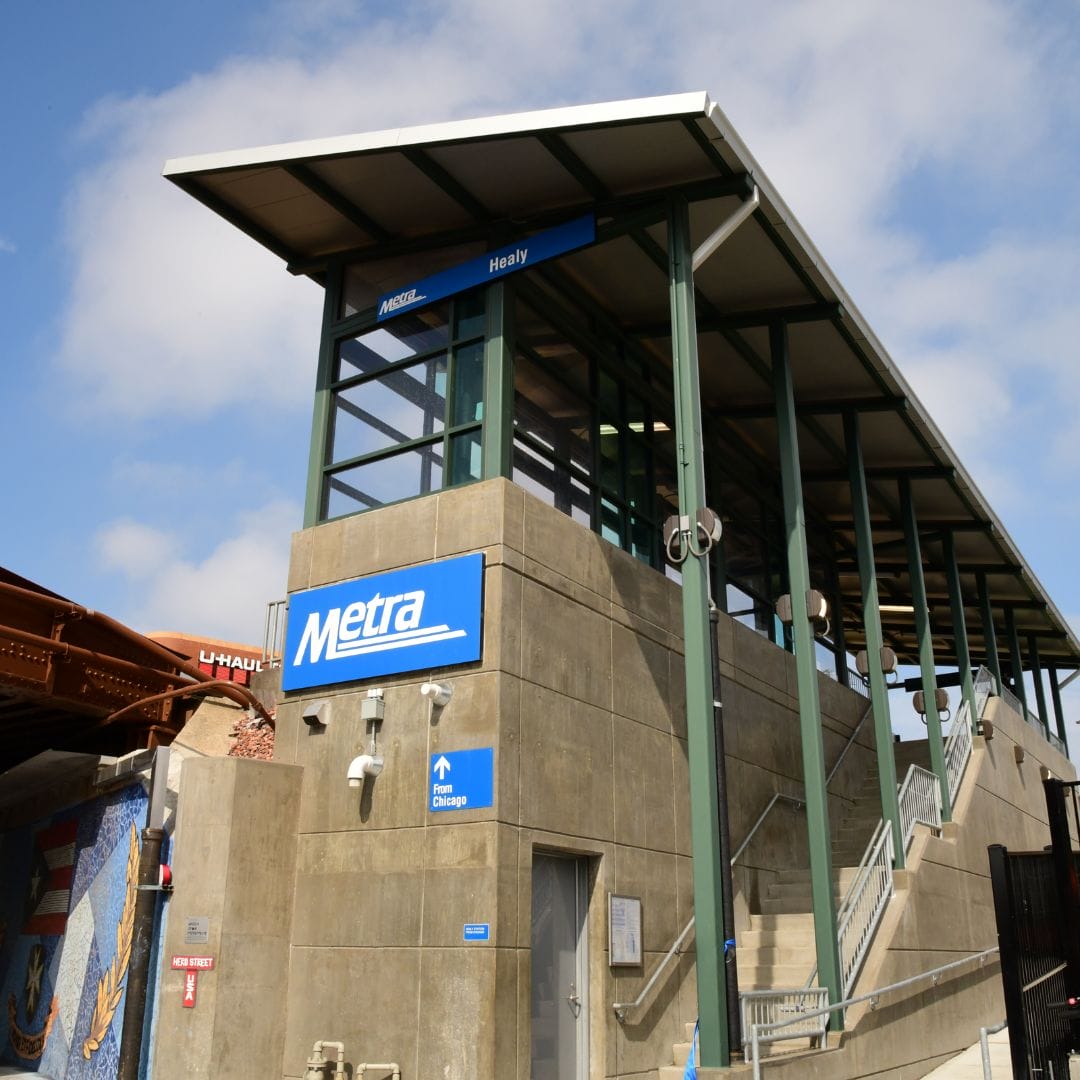Metra, the commuter rail system in Chicago and its suburbs, plans to use $705 million in federal money to balance its budget through 2024.
Metra’s operating expenses for 2022 are projected to be $78 million more than the last full year before the pandemic, even though it expects to have less than half of the ridership it had in 2019 before the pandemic. In 2019, Metra’s operating expenses totaled $822 million.
The federal relief money is expected to run out by 2025. It’s not yet clear if ridership will bounce back by then, raising questions about how to fund the commuter train service with a network of 11 lines on 1,200 miles of track in Cook County and the collar counties of DuPage, Kane, Lake, McHenry and Will along with Kenosha, Wisconsin.
Metra Director of Communications Michael Gillis said it is too early to speculate if the agency will need to raise fares or consider service cuts. For now, with federal emergency operating money in hand, the agency is focused on ridership.
“Like our sister agencies in the Chicago area and like mass transit agencies across the country, right now we are working to rebuild ridership,” he said.
Fewer passengers since the pandemic have put a damper on Metra’s farebox recovery ratio, or the amount of money passengers pay to offset the overall cost of operating the system. In November 2021, the year-to-date farebox recovery ratio was 38%, below the agency’s 52.5% target. Before the pandemic shutdowns, in December 2019, the year-to-date farebox recovery ratio was 55.4%.
Gillis said Metra has been supplementing its farebox revenue with federal COVID-19 relief money.
“The recovery ratio after federal relief is 52.6%,” he said.
Metra has enough federal relief funding to continue to supplement its other revenue through 2025, but it won’t last forever.
“In total, there is $783.3 million of available federal COVID relief funding which will be used to cover funding deficits that may occur in 2022 and thereafter,” according to the agency’s audited financial statements.
For 2022, Metra budgeted operating expenses at $900 million. That’s $100 million, or 12.5%, higher than its 2021 amended budget, according to its 2022 budget and financial plan. Metra’s operating expenses are growing even though the agency is serving significantly fewer passengers. This year, Metra expects to have less than half of the ridership it had in 2019 before the pandemic, according to agency officials.
Metra plans to use the federal funding to keep it in the black in the coming years.
“Metra’s Financial Plan for 2023 and 2024 assumes that passenger fare revenue recovers to 50% of 2019 levels during 2023 and 72.5% of 2019 levels during 2024. … However, the total of projected passenger fare revenue, other operating revenue and sales taxes will be insufficient to fund projected operating expenses of $930 million in 2023 and $960 million in 2024 and will require usage of $238 million and $171 million of allocated federal relief funds, in 2023 and 2024, respectively,” according to the plan. “In total, approximately $705 million of allocated federal relief funds are utilized during the 2022-2024 period.”
Metra has traditionally supported about half of its operating costs, excluding depreciation, from operating revenue. The other half comes from state and local tax dollars, including dedicated sales taxes, according to its financial statements.
Metra faces challenges for ridership recovery, including the possibility that not all workers will return to the office.
“The first two years of COVID-19 drastically increased the number of workers who were allowed to telecommute and increased their frequency. Employers gradually resumed some level of in-person work in 2021, as COVID- 19 vaccinations increased and cases decreased,” according to Metra’s 2021 ridership trends report. “A higher rate of telecommuting is likely to continue.”
The report further noted that “prior to COVID-19, approximately 90% of passenger trips taken on Metra were for work.”
Northern Illinois’s winter weather combined with higher gas prices also could affect ridership, according to the report.
Agency officials said ridership recovery will take time.
“Our 2022 budget projected ridership would start the year at 25% of our pre-COVID numbers and finish at 35%,” Gillis said. “We did not start at 25% but we are now at about 35-40%. For 2023, we projected we’d finish at 65% of our 2019 numbers and for 2024 we predicted we’d finish at 80%.”
Gillis said those figures could be updated in the fall.
This article originally appeared on The Center Square.






